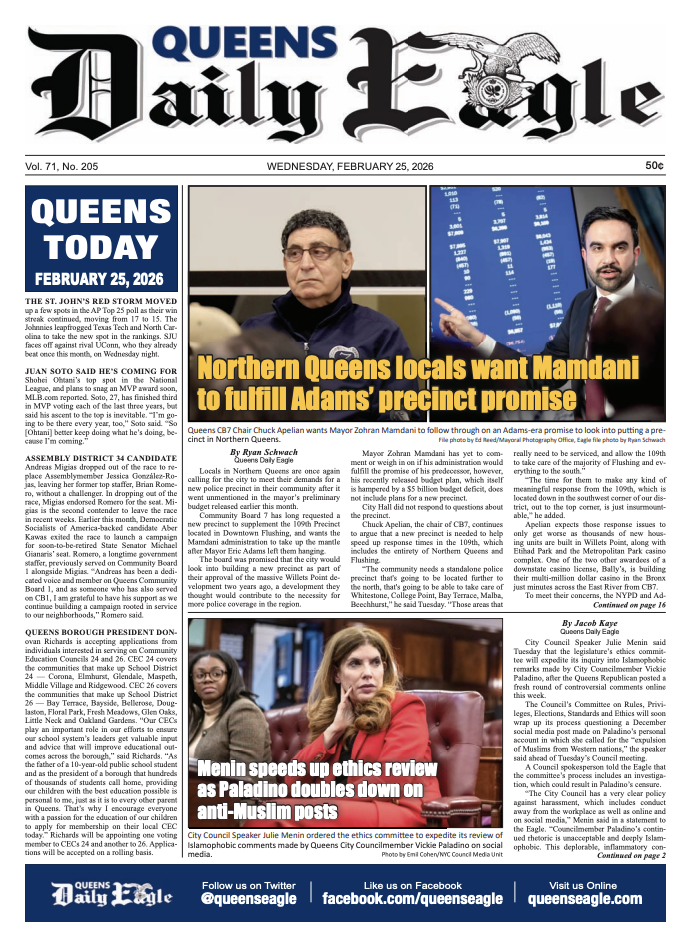City kicks key Queens compost site to the curb
/The city did not offer nonprofit composting site Big Reuse the option to renew it lease agreement on city-owned land beneath Queensboro Bridge. Eagle Photo by Rachel Vick
By Rachel Vick
Three years ago, the organization Big Reuse took over a vacant lot under the Queensboro Bridge and turned it into an interactive hub for collecting and composting household food waste and yard scraps.
Now the New York City Parks Department is moving to evict them.
Big Reuse Project Coordinator Devin Reitsma said he and his colleagues felt blindsided by the city’s recent refusal to renew their three-year lease agreement, especially after the Department of Sanitation cut its own curbside pickup program to save money early this year. The city has encouraged New Yorkers to compost their organic waste at sites like Big Reuse.
“We’re just trying to convince Parks that they should be composting,” Reitsma said. “It’s kind of insane that they don’t feel the need to compost. I just want to have a conversation with them — this is for public benefit.”
The composting nonprofit has pursued alternative sites, but it’s an expensive endeavor, Reitsma said.
Parks Department spokesperson Charisse Hill said the agency will use the reclaimed space “for crucial operational needs,” including parking and storage for nearby Queensbridge Park. There is a Parks-managed lot adjacent to the site currently used for vehicle storage.
Reitsma said his organization was providing a key public service.
“In February there was more material coming onsite than we could handle, and other local compost sites are near or over capacity because there’s been so much growth in participation,” Reitsma said.
“If this site closes, the millions pounds of food scraps people drop off are going to have to go somewhere else, further away, which creates more pollution, more greenhouse gases and removes this resource,” he added. “It’s ethically abhorrent in the climate crisis.”
The site was a dumping ground before Big Reuse turned it into a vital composting site. Photo courtesy of Big Reuse
Since establishing the site on the abandoned lot in Queensbridge in 2016 they have processed over a million pounds of food scraps yard waste from community members and the Parks Department annually.
The scraps are turned into compost later used in the city’s parks and gardens.
Continuing the partnership makes sense for everyone involved, said Big Reuse Executive Director Justin Green. Meanwhile, eliminating such a mutually beneficial program seems antithetical to the sustainability goals put forth by the city to fight the climate crisis and outlined in several pieces of legislation, Green said.
“What we've created with Parks and Sanitation is a model that could be replicated in a way that takes leaves and yard waste and turns it into something useful for parks,” Green said. Compost is one of the healthiest and most sustainable ways to replenish soil and support growth, he said.
Big Reuse, which works alongside the Sanitation Department, has received support from organizations like the Natural Resources Defense Council and New York Lawyers for Public Interest, as well as local elected officials like Councilmembers Jimmy Van Bramer, Brad Lander and Antonio Reynoso.
“Especially right now with the budget crunch, we’re a way to bring extra resources to parks,” Green said. “I keep hoping they’ll wake up. It makes so much sense — we as a community need to work together to fight climate change.”





